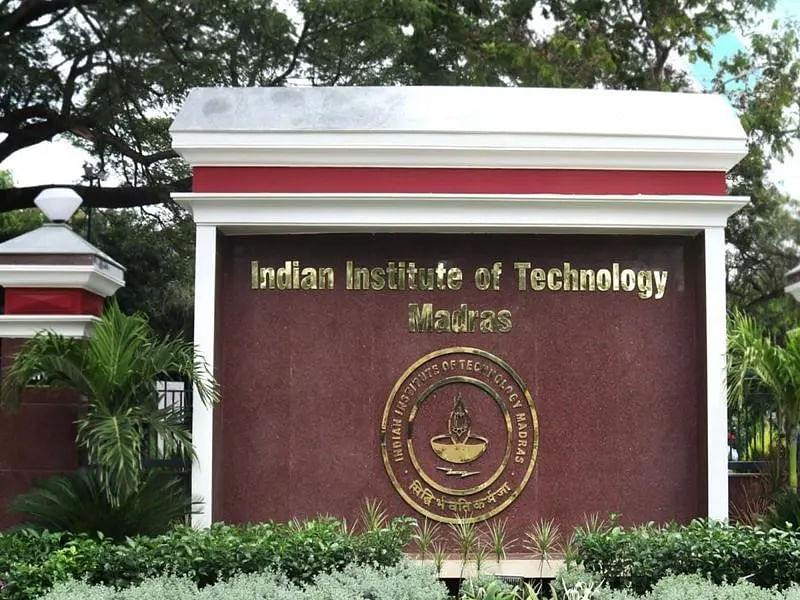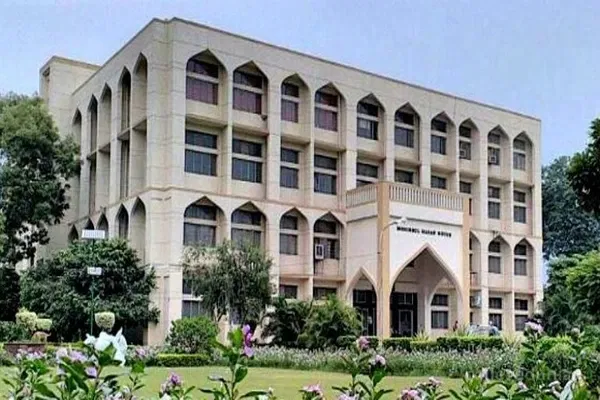BTech Electrical Engineering: Course Details, Eligibility, Fees, Admission

B.Tech Electrical Engineering is a four-year undergraduate course that focuses on the design, development, and testing of electrical equipment such as motors, power generation systems, and more. The B.Tech Electrical syllabus focuses on topics such as Electrical Machines, Power Electronics, CAD, High Voltage Engineering, Mechatronics, and more.
The B.Tech Electrical Engineering admission process requires students to have completed 10+2 with Physics, Chemistry, and Maths as mandatory subjects from a recognised board with 50% for general candidates and 45% for reserved candidates.Additionally, students are also required to appear and qualify entrance exams such as JEE, COMEDK, TANCET, etc.
The B.Tech Electrical Engineering fees in India ranges from INR 2,000 - 3,50,000 per year. The B.Tech Electrical Engineering fee range in government colleges ranges from INR 2,000 - 60,000 per year whereas the fees in private colleges range from INR 20,000 - 3,50,000 per year.
Table of Contents
- What is BTech Electrical Engineering Course?
- B.Tech Electrical Engineering Eligibility Criteria
- Why Choose B.Tech EE?
- B.Tech Electrical Engineering Admission Process 2024
- B.Tech Electrical Engineering Entrance Exam
- Top B.Tech Electrical Engineering Colleges in India with Fee Details
- Types of BTech in Electrical Engineering Courses in India
- BTech Electrical Engineering Syllabus and Subjects
- B.Tech Electrical Engineering Vs BTech Electronics Engineering
- Courses After B.Tech in Electrical Engineering
- Career Options After B.Tech Electrical Engineering Course
- B.Tech Electrical Engineering Salary in India
- B.Tech Electrical Engineering Scholarships
- Top 5 Cities to Pursue B.Tech Electrical Engineering Course
- Skills to Excel as a BTech Electrical Engineering Graduate
B.Tech Electrical Engineering Course Details
| Degree | Bachelors |
| Full Form | Bachelor of Technology in Electrical Engineering |
| Duration | 4 Years |
| Age | No age limit |
| Entrance Exam | JEE, VITEEE, WBJEE, TANCET, etc |
| Minimum Percentage | 10+2 with Physics, Chemistry, and Mathematics with 50% aggregate score for general category and 45% for reserved category |
| Average Fees | INR 2,000 - 3,50,000 per year |
| Similar Options of Study | B.Tech (Electrical and Electronics Engineering), B.Tech (Electronics Engineering), B.Tech (Electronics and Instrumentation Engineering) etc. |
| Average Salary | INR 2 - 8 LPA [AmbitionBox] |
| Employment Roles | Electrical Engineer, Power Systems Engineer, Instrumentation Engineer, Electrical Design Engineer |
| Top Recruiters | Reliance Industries, BHEL, Havells, L&T Limited, Siemens, HCL Technologies, Tata Industries |
What is BTech Electrical Engineering Course?
B.Tech in Electrical Engineering course equips students with the theoretical knowledge and practical skills to understand electrical systems and apply them across various domains including power generation, electronics, automation, transmission, telecommunications, and more. Some of the popular colleges offering B.Tech in Electrical Engineering include LPU, Christ University, IIT, NIT, etc.
The B.Tech Electrical Engineering job scope is vast with opportunities in industries such as Electricals, Automotive, Communications industries, among others. Some of the top job roles are Electrical Engineer, Systems Engineer, Power Generation Engineer, etc. The average B.Tech Electrical Engineering salary ranges from INR 2 - 8 LPA.
B.Tech Electrical Engineering Eligibility Criteria
The B.Tech Electrical Engineering eligibility criteria requires students to meet certain parameters such as educational qualification, entrance exam score, minimum marks, etc. Listed below are the common eligibility requirements that students must meet for admission.
- Candidates must have completed their 10+2 with Physics, Chemistry, and Maths from a recognised board with 50% aggregate marks for general category candidates and 45% for reserved category candidates. In addition, students are also required to clear entrance exams such as JEE, COMEDK, WBJEE, etc.
- There is no minimum age limit to enrol for the course.
Why Choose B.Tech EE?
Before choosing to pursue a B.Tech in Electrical Engineering students need to have a basic understanding of the industry trends and market dynamics. Listed below are a few points as why it is beneficial to pursue a BTech in Electrical Engineering:
- As per the report by Statista, the electrical equipment market is set to expand with 8,10,000 enterprises projected by 2024, growing at a CAGR of 0.79%.
- Based on a report by Technavio, the electrical equipment market of India is expected to reach USD 52.98 billion by 2027.
- The demand for electrical equipment is being propelled by the renewable energy sector, particularly in solar and wind power generation.
- There has been a substantial increase in investment (USD 38 billion) in smart grid infrastructure creating avenues for innovation within the field of electrical engineering.
B.Tech Electrical Engineering Admission Process 2024
The BTech Electrical Engineering admission process is done based on entrance exams and merit. Major colleges in India such as the IITs, NITs, VIT Vellore, BITs Pilani, and more accept admissions through entrance exams. However, some institutions such as DBUU, IILM University, Alliance University, etc accept direct admission based on merit.
The BTech Electrical Engineering admission process is outlined below.
- Step 1. Students must appear and qualify the entrance exam as specified by the colleges.
- Step 2. Students must fill out and submit the application form with correct details for the respective colleges.
- Step 3. Based on the entrance exam scores or via merit, colleges will release the names of the shortlisted students.
- Step 4. Selected students will be called for counselling or additional rounds of selections (if any) such as Group Discussions or Personal Interviews.
- Step 5. Students selected for admission must submit the documents for verification and pay the BTech Electrical Engineering admission fee.
Also, Read More on B Tech Admission
B.Tech Electrical Engineering Entrance Exam
Most colleges in India accept admissions on the basis of entrance exams that are conducted at the state, national, and institutional levels. Listed below are the top entrance exams conducted in India for admission to B.Tech EE courses in India.
| Entrance Exam | Exam Date | Accepting Colleges |
| JEE Main | Apr 4 - 12, 2024 | IITs, SRMIST, Thapar Institute of Engineering and Technology |
| COMEDK UGET | May 12, 2024 | ACS College of Engineering, BMS College of Engineering, Jain College of Engineering |
| WBJEE | Apr 2024 (Tentative) | Jadavpur University, MAKAUT, IEM Kolkata |
| SRMJEEE | Jun 21 - 23, 2024 | SRM College of Engineering, SRM Institute of Science and Technology |
| VITEEE | Apr 2024 (Tentative) | VIT Bhopal University, VIT Chennai,VIT-AP |
Top B.Tech Electrical Engineering Colleges in India with Fee Details
BTech Electrical Engineering is offered by several government and private engineering institutes in India including IITs, NITS, LPU, Jadavpur University, etc. The BTech ECE course fees are in the range of INR 2,000 - 3,50,000 per year.
Listed below are the top engineering institutes in India offering B.Tech Electrical Engineering along with their fee details.
| NIRF Ranking 2023 | Colleges | Tuition Fees Per Year (INR) | Admission Fees (INR) | Miscellaneous Fees Per Year (INR) |
| 1 | IIT Madras | 1,00,000 | - | 80,000 |
| 2 | IIT Delhi | 2,00,000 | 8,150 | 21,250 |
| 3 | IIT Bombay | 2,00,000 | 8,900 | 40,000 |
| 4 | IIT Kanpur | 2,00,000 | 2,950 | 60,000 |
| 5 | IIT Roorkee | 2,00,000 | 3,000 | 60,000 |
| 6 | IIT Kharagpur | 2,00,000 | 5,700 | 70,000 |
| 7 | IIT Guwahati | 2,00,000 | 9,500 | 64,200 |
| 8 | IIT Hyderabad | 2,00,000 | 8,000 | 54,000 |
| 9 | NIT Trichy | 1,25,000 | 29,200 | 20,000 - 27,000 |
| 10 | Jadavpur University | 2,400 | 1,800 | - |
| 11 | VIT Vellore | 1,73,000 | 3,000 | - |
| 12 | NIT Surathkal | 1,25,000 | 14,620 | 30,000 |
| 15 | IIT Varanasi | 2,00,000 | 5,750 | 15,000-20,000 |
| 16 | NIT Rourkela | 1,25,000 | 2,500 | 73,000 |
| 17 | IIT Dhanbad | 2,00,000 | 13,400 | 14,000-30,000 |
| 18 | IIT Gandhinagar | 2,00,000 | 12,750 | 46,588 |
| 19 | Amrita Vishwa Vidyapeetham | 3,50,000 | 10,000 | 1,05,000 |
| 21 | NIT Warangal | 1,25,000 | - | 22,000 |
| 22 | IIT Ropar | 1,00,000 | 3,000 | 86,650 |
| 23 | NIT Calicut | 1,25,000 | 30,500 | 20,000 |
Top City Wise B.Tech EE Colleges in India
The location-wise BTech Electrical Engineering colleges in India are listed below:
| Location | Tuition Fees Per Year (INR) |
| BTech Electrical Engineering Colleges in Chennai | 2,000 - 2,00,000 |
| BTech Electrical Engineering Colleges in Jaipur | 15,000 - 3,00,000 |
| BTech Electrical Engineering Colleges in Hyderabad | 12,000 - 3,50,000 |
| BTech Electrical Engineering Colleges in Bangalore | 20,000 - 2,50,000 |
| BTech Electrical Engineering Colleges in Kolkata | 2,000 - 3,50,000 |
| BTech Electrical Engineering Colleges in Coimbatore | 10,000 - 3, 50,000 |
| BTech Electrical Engineering Colleges in Bhopal | 30,000 - 2,00,000 |
| BTech Electrical Engineering Colleges in Mumbai | 50,000 - 3,00,000 |
Types of BTech in Electrical Engineering Courses in India
BTech Electrical Engineering is offered as a full-time, integrated, and lateral entry course in India. Students can choose the course type that is suitable for them based on their needs and preferences.
The BTech Electrical Engineering course details are provided in the table below.
| Type | Eligibility | Duration |
| Full-Time | A minimum of 50% marks in 10+2 with Physics, Chemistry, and Maths for general category and 45% marks for reserved category students + Entrance Exam Score | 4 Years |
| Integrated | A minimum of 60% marks in 10+2 with Physics, Chemistry, and Maths + Entrance Exam Score | 5 Years |
| Lateral Entry | A minimum of 60% marks in Diploma or equivalent qualification in a relevant field. | 3 Years |
Integrated B.Tech Electrical Engineering Course
An integrated B.Tech Electrical Engineering course allows students to pursue a 5 year program covering a bachelors and masters degree in a single course. The details regarding the integrated BTech Electrical Engineering course is outlined below:
- Integrated BTech Electrical Engineering is offered in the form of BTech + MTech or BTech + MBA.
- Some of the top colleges offering integrated BTech Electrical Engineering are SRMU, Gautam Buddha University, etc.
- The integrated B.Tech Electrical Engineering fee ranges from INR 50,000 - 2,00,000 per year.
Lateral Entry B.Tech Electrical Engineering Course
BTech Electrical Engineering through lateral entry grants admission to students directly in the second year of the course. The details regarding the BTech Electrical Engineering through lateral entry are given below.
- BTech Electrical Engineering through lateral entry are available in colleges such as MGM University, CGC Jhanjeri, Invertis University, etc.
- The lateral entry B.Tech Electrical Engineering fee ranges from INR 30,000 - 2,50,000 per year.
BTech Electrical Engineering Syllabus and Subjects
The BTech in Electrical Engineering syllabus in the first year covers fundamentals of engineering such as basic electrical and electronics, engineering graphics, engineering maths, etc while the second year syllabus focuses on topics such as signals and systems, instrumentation, and more.
The BTech Electrical Engineering subjects in the third and fourth year deals with advanced topics of electrical engineering such as electromagnetic fields, advanced control systems, and allows students to choose areas of specialisation through elective offerings.
The semester-wise BTech Electrical Engineering syllabus is detailed in the sections below.
| Semester I | Semester II |
| Language (professional Comm. in English) | Introduction to Computing |
| Engineering Chemistry | Environment & Ecology |
| Engineering Physics I | Engineering Physics II |
| Mathematic I | Mathematics II |
| Engineering Mechanics | Engineering Thermodynamics |
| Basic Electrical Engineering | Basic Electronics |
| Chemistry Lab | Basic Electronics Lab |
| Physics Lab | Computer Programming Lab. |
| Engineering Mechanics Lab | Engineering Graphics II (M/C Drawing) |
| Electrical Lab | Workshop Practice II |
| Engineering Graphic I | - |
| Workshop Practice - I | - |
| Semester III | Semester IV |
| Numerical Analysis & Computer Programming (C, C++) | Solid State Devices |
| Material Science | Circuit Theory |
| Strength of Materials | Electromagnetic Theory |
| Fluid Mechanics & Fluid Machinery | Electrical Machines - I |
| Mathematics III | Digital Electronics |
| Electrical Measurements and instrumentation | Power System - I |
| Numerical Analysis & Computer Programming (C, C++) Practical | Solid State Devices Practical |
| Material Science Practical | Electrical Machines - I Lab |
| Strength of Materials Practical | Electromagnetic Theory Lab |
| Electrical Measurements and Instrumentation Practical | - |
| Semester V | Semester VI |
| Management Concepts and Techniques | Signals & Systems |
| Analog Electronics | Microprocessors & Microcontrollers |
| Control Engineering | Communication Engineering |
| Electrical Machines - II | Power Electronics |
| Power Systems - II | Power System Stability |
| Digital Electronics and Logic Design | Design of Control System |
| Analog Electronics Practical | Power Electronics Practical |
| Electrical Machines - II Practical | - |
| Semester VII | Semester VIII |
| Computer Aided Power System | Open Elective - II |
| Network Synthesis | Professional Elective - II |
| Power System Protection & Switchgear | Professional Elective - III |
| Open Elective - I | High Voltage Engineering |
| Professional Elective - I | Digital Signal Processing |
| Colloquium | Project - II |
| Computer Aided Power System Practical | - |
| Switchgear & Protection Practical | - |
| Project - I | - |
B.Tech Electrical Engineering Vs BTech Electronics Engineering
The B.TechElectrical Engineering course is designed to provide students with a strong foundation in electrical engineering fundamentals whereas the B.Tech ECE course focuses on electronic equipment and communication systems.
Outlined below is the course comparison between BTech Electrical Engineering and BTech ECE:
| Parameter | B.Tech EE | BTech ECE |
| Full Form | Bachelor of Technology in Electrical Engineering | Bachelor of Technology in Electronics and Communication Engineering |
| Course Overview | B.Tech EE curriculum focuses on electronic and electrical theory, power systems, electrical machines, high voltage engineering, etc. | B.Tech ECE curriculum focuses on courses in analog and digital electronics, signal processing, communication systems, etc. |
| Stream | Engineering | Engineering |
| Duration | 4 Years | 4 Years |
| Eligibility | 10+2 with Physics, Chemistry, and Mathematics with 50% aggregate | 10+2 with Physics, Chemistry, and Mathematics with 50% aggregate |
| Entrance Exam | JEE, TANCET, COMEDK, SRMJEE | JEE, COMEDK, VITEEE, WBJEE |
| Top Colleges | IIT Madras, IIT Bombay, Jadavpur University | IIT Roorkee, IIT Kharagpur, VIT |
| Tuition Fees Per Year | INR 2,000 - 3,50,000 | INR 2,400 - 5,75,000 |
| Average Salary | INR 2 - 8 LPA | INR 3 - 8 LPA |
| Job Roles | Electrical Engineer, Power Systems Engineer, Instrumentation Engineer | Signal Processing Engineer, Networks Engineer, Communication Engineer |
Read more: B.Tech ECE
Courses After B.Tech in Electrical Engineering
After completing a B.Tech in Electrical Engineering, students can opt for higher studies or certification courses to enhance their knowledge and domain skills. Some of the courses offered for students after BTech Electrical Engineering are outlined below.
- MTech in Electrical Engineering
- MBA
- PhD in Electrical Engineering
- Certification Course in Electronics
- Course in Programming Languages
Career Options After B.Tech Electrical Engineering Course
B.Tech Electrical Engineering jobs are available in both the private and government sectors. Some of the top job roles after B.Tech Electrical Engineering include Electrical Engineer, Power Systems Engineer, Instrumentation Engineer, and more.
Listed below are the B.Tech Electrical Engineering jobs after graduation with their job descriptions and top recruiters.
| Job Roles | Job Description | Top Hiring Companies |
| Electrical Engineer | Responsible for designing, developing, testing and supervising the production of electrical equipment, systems, and components. | L&T Limited, Reliance Industries, Siemens, Bajaj Electricals. |
| Control Systems Engineer | Responsible for designing and implementing systems to control processes or machinery. | TCS, ABB Group, Schneider Electric. |
| Instrumentation Engineer | Responsible for developing instruments to measure and control processes in various industries. | Aarti Industries, Bhilosa Industries, Voltech. |
| Power Systems Engineer | Responsible for designing and maintaining electrical grids and power systems. | Accenture, Infosys, Caterpillar Inc. |
B.Tech Electrical Engineering Salary in India
The salary range in India is affected by various factors such as job roles, experience, sector, location, company, etc. The average B.Tech Electrical Engineering salary ranges from INR 2 - 8 LPA [Source: AmbitionBox].
The average entry-level B.Tech Electrical Engineering salary starts from INR 2 LPA and can reach up to INR 5 LPA. However, with more years of experience the salary level can increase significantly earning more than INR 8 LPA after 5+ years of experience.
The B.Tech Electrical Engineering salary for different job roles is provided in the table below.
| Job Roles | Average Entry Level Salary (INR) | Average Salary After 5+ Years of Experience (INR) |
| Electrical Engineer | 3 LPA | 8.3 LPA |
| Electrical Design Engineer | 3 LPA | 9.5 LPA |
| Power Systems Engineer | 3.8 LPA | 8.8 LPA |
| Instrumentation Engineer | 3 LPA | 8 LPA |
| Field Application Engineer | 2.9 LPA | 8 LPA |
Top Recruiters for B.Tech Electrical Engineering
The B.Tech Electrical Engineering graduates are recruited by top companies in India such as TCS, Reliance Industries, Bajaj Electrical, etc.
Listed below are the top recruiters for B.Tech Electrical Engineering graduates.
| Tata Technologies | L&T Limited | Siemens |
| Schneider Electric | Tech Mahindra | HCL Tech |
| ABB Group | TCS | Caterpillar Inc. |
| Reliance Industries | Bajaj Electricals | Coal India |
| BHEL | ISRO | Havells India |
B.Tech Electrical Engineering Scholarships
In India, students have the option to apply for scholarships that are provided by the government and private organisations. These scholarships aid students financially by covering the tuition fees, offering allowances, stipends, etc. Listed below are some of the scholarships available for BTech Electrical Engineering students in India.
| Scholarship | Eligibility | Scholarship Amount |
| ONGC Scholarship |
|
INR 48,000 per year |
| Timken Scholarship |
|
Up to INR 75,000 per year |
| Sitaram Jindal Foundation Scholarship |
|
1,25,000 per year |
| Rajarshi Shahu Maharaj Scholarship |
|
100 % tuition and exam fee coverage |
| UPESEAT Scholarship for BTech Students |
|
50% remission on tuition fee |
Top 5 Cities to Pursue B.Tech Electrical Engineering Course
B.Tech Electrical Engineering course in India is offered across several cities that provides students with quality education offering the latest curriculum, industrial exposure, internship opportunities, placements with high CTC, and more.
Listed below are the top 5 cities in India offering BTech Electrical Engineering along with their average living expense, average starting salary, etc.
| City | Top Colleges | Average Monthly Living Expenses (INR) | Average Entry-Level Salary (INR) | Top Recruiters |
| Chennai | IIT Madras, SRM IST, Rajalakshmi Engineering College | 20,000 - 30,000 | 2,50,000 - 5,00,000 | Ubitech Group, Voltech, Havells |
| Hyderabad | IIT Hyderabad, IIIT, JNTU | 20,000 - 30,000 | 3,00,000 - 4,00,000 | Siemens, ABB Group, HBL Power Systems |
| Bhubaneshwar | KIIT, IIT Bhubaneswar, CV Raman Global University | 15,000 - 25,000 | 2,00,000 - 4,00,000 | Bhabanis Electricals, Smart Chip, JPS |
| Coimbatore | PSG College of Technology, SK College of Engineering and Technology, AVV | 15,000 - 30,000 | 3,00,000 - 5,00,000 | LECS, Swelect Energy Systems, Apar Industries |
| New Delhi | JMI, NSUT, IIIT | 20,000 - 30,000 | 3,00,000 - 5,00,000 | LG Electronics, Lapp India, C&S Electric |
Skills to Excel as a BTech Electrical Engineering Graduate
A B.Tech Electrical Engineering student must possess some necessary knowledge and skills that will help them throughout the course duration and in their future career. Listed below are some of the key skills that a student needs to excel as a B.Tech Electrical Engineering graduate.
- Power System Analysis: Students must have the ability to analyse and design electrical systems including transformers, transmission lines, and distribution networks.
- Electronics Design: Students are required to have adequate knowledge of analog and digital electronics design principles, including circuit designs, PCB layout, component selection, and troubleshooting.
- High Voltage Engineering: Students should have basic knowledge of high voltage principles and techniques used for designing, testing, and maintaining high voltage equipment.
- Instrumentation and Measurement: Students must have skills in designing and calibrating measurement instruments and systems for accurately measuring electrical quantities such as voltage, currency, and frequency.
Top B.Tech Electrical Engineering Colleges
Top Engineering Entrance Exams
B.Tech Electrical Engineering Fee Structure
FAQs on B.Tech Electrical Engineering
Q: Is coding required in BTech Electrical Engineering?
Q: Is Maths compulsory to do BTech EE?
Q: Is BTech Electrical Engineering tough?
Q: Which IIT is best for EE?
Q: Which is better B.Tech Electrical Engineering vs Computer Science?
Q: Which branch is better BTech ECE or EE?
Q: What percentage is required for Electrical Engineering?
Q: What is the difference between EE and EEE in btech?
Q: What opportunities do B.Tech EE graduates have in the context of emerging technologies like renewable energy, IoT, and AI?
Q: Is internship integrated in BTech Electrical Engineering?
Q: What is the scope of BTech Electrical Engineering?
Q: What scholarships are available for BTech Electrical Engineering students?
























